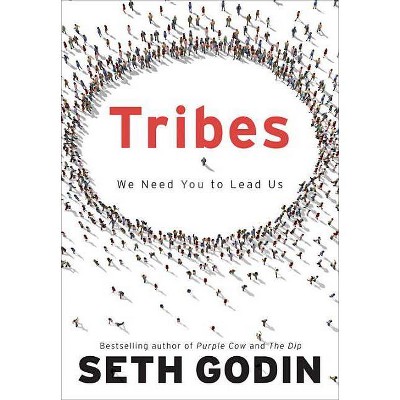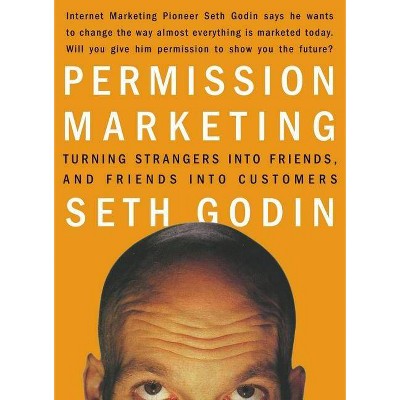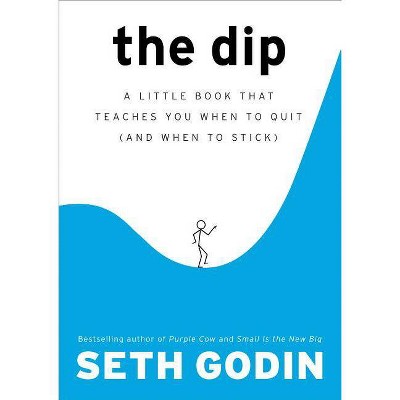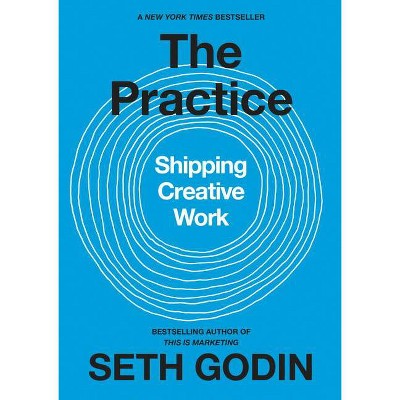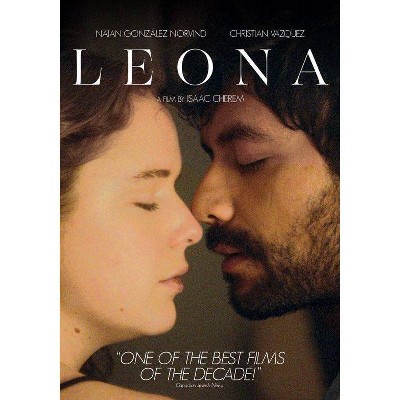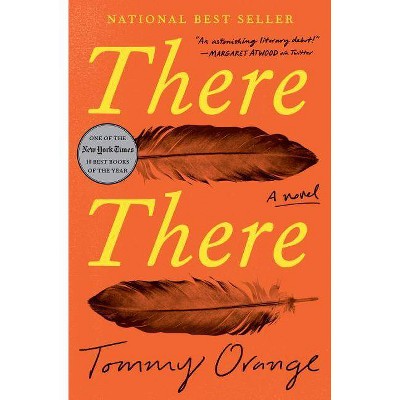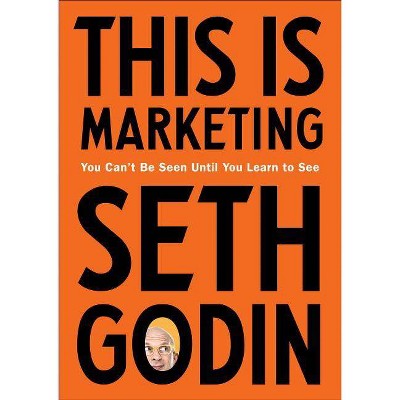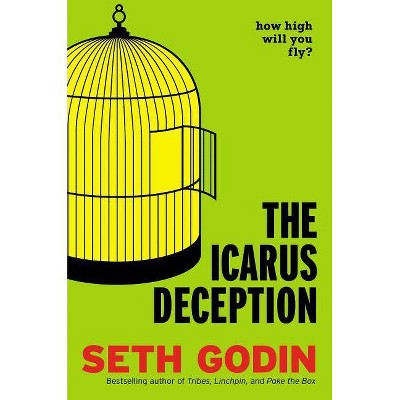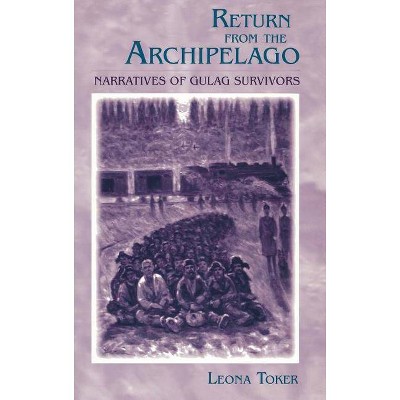There Plant Eyes - by M Leona Godin (Hardcover)
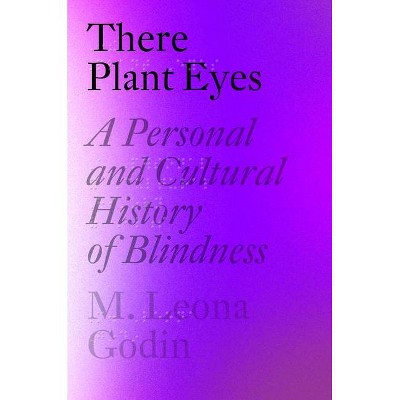
Similar Products
Products of same category from the store
AllProduct info
<p/><br></br><p><b> About the Book </b></p></br></br>"A probing, witty, and deeply insightful history of blindness--in Western culture and literature, and in the author's own experience--that ranges from Homer to Milton to Braille to Stevie Wonder. M. Leona Godin begins her fascinating, wide-ranging study with an exploration of how the idea of sight is inextricably linked with knowledge and understanding; how "blindness" has, for millennia, been used as a metaphor for ignorance; and how, in metaphorical terms, blindness can also be made to suggest a door to artistic or spiritual transcendence. And she makes clear how all of this has obscured the reality of blindness, as a consequence of which many blind people have to deal not just with their disability but also with expectations of "specialness." Godin illuminates the often surprising history of both the physiological condition and of the ideas that have attached to it. She incorporates analysis of blindness in art and literature (from King Lear to Star Wars) and in culture (assumptions of the blind as pure and magically wise) with the science of blindness and key developments in accessibility (the white cane, seeing eye dogs, eBooks), and with her own experience of gradually losing sight over the course of three decades. Altogether, she gives us a revelation of the centrality of blindness and vision to humanity's understanding of itself and the world"--<p/><br></br><p><b> Book Synopsis </b></p></br></br>From Homer to Helen Keller, from <i>Dune</i> to Stevie Wonder, from the invention of braille to the science of echolocation, M. Leona Godin explores the fascinating history of blindness, interweaving it with her own story of gradually losing her sight. <p/><i>There Plant Eyes </i>probes the ways in which blindness has shaped our ocularcentric culture, challenging deeply ingrained ideas about what it means to be "blind." For millennia, blindness has been used to signify such things as thoughtlessness ("blind faith"), irrationality ("blind rage"), and unconsciousness ("blind evolution"). But at the same time, blind people have been othered as the recipients of special powers as compensation for lost sight (from the poetic gifts of John Milton to the heightened senses of the comic book hero Daredevil). <p/>Godin--who began losing her vision at age ten--illuminates the often-surprising history of both the condition of blindness and the myths and ideas that have grown up around it over the course of generations. She combines an analysis of blindness in art and culture (from <i>King Lear </i>to <i>Star Wars</i>) with a study of the science of blindness and key developments in accessibility (the white cane, embossed printing, digital technology) to paint a vivid personal and cultural history. <p/>A genre-defying work, <i>There Plant Eyes </i>reveals just how essential blindness and vision are to humanity's understanding of itself and the world.<p/><br></br><p><b> Review Quotes </b></p></br></br><br>"[A] thought-provoking mixture of criticism, memoir, and advocacy. Drawing on works including the <i>Odyssey</i>, <i>Oedipus Rex</i>, <i>King Lear</i>, and <i>Paradise Lost</i>, [Godin] traces two ideas: that being unable to see brings deep insight and that the blind can show how little the sighted truly see. Godin counters these stereotypes with her own experiences and with surprising details from the lives of blind activists such as Helen Keller, to argue that 'there are as many ways of being blind as there are of being sighted.'" <br><b>--<i>The New Yorker</i></b> <p/>"Elegant, fiercely argued . . . Godin enlarges our understanding of the blind and sight impaired, and <i>There Plant Eyes</i> proves a landmark contribution to the literature of disability, comparable to Lucy Grealy's <i>Autobiography of a Face</i> and Jean-Dominique Bauby's <i>The Diving Bell and the Butterfly</i>--which is to say the literature of the human itself." <br><b>--<i>The Wall Street Journal</i></b> <p/>"<i>There Plant Eyes</i> is so graceful, so wise, so effortlessly erudite, I learned something new and took pleasure in every page. All hail its originality, its humanity, and its 'philosophical obsession with diversity in all its complicated and messy glory.'" <br><b>--Maggie Nelson, author of <i>The Argonauts</i></b> <p/>"A revealing and humorous account of how blindness has been misunderstood by the sighted . . . By turns heartfelt and thought-provoking, this is a striking achievement." <br><b>--<i>Publishers Weekly</i> (starred review)</b> <p/>"Godin guides readers through the surprising twists and turns in Western blind history, from ancient seers to contemporary scientists. The lively writing style and memorable personal anecdotes are delightful. This book is a gift to both blind and sighted readers." <br><b>--Haben Girma, human rights lawyer and author of the best-selling <i>Haben: The Deaf blind Woman Who Conquered Harvard Law</i></b> <p/>"This sighted disabled person learned so much from <i>There Plant Eyes</i>! The book took me on a cultural journey that showed how blindness isbeautiful, complex, and brilliant." <br><b>--Alice Wong, editor of <i>Disability Visibility: First-Person Stories from the Twenty-first Century</i></b> <p/>"A passionate argument for placing blind people at the center of their own stories . . . An insightful and wide-ranging book that asks sighted readers to examine the myriad ways in which our culture uses concepts of blindness as metaphor or morality tale while simultaneously ignoring the existence, insights, and experiences of blind people . . . <i>There Plant Eyes</i> speaks eloquently and urgently to the necessity of making space for blind thinkers within our ocular-centric world." <br><b>--<i>Booklist</i></b> <p/>"Godin moves effortlessly from erudite explorations of the construction of 'blindness' to incisive and often funny examinations of technology that helps--or does not help--the blind individual to personal stories of her own life. I was only a few pages in before I realized that what I thought about being blind was either wrong or woefully insufficient. The reader will be lost in admiration for Godin's gifts as a writer and cultural critic." <br><b>--Riva Lehrer, author of<i> Golem Girl: A Memoir</i></b> <p/>"I've been waiting most of my life for a book like <i>There Plant Eyes </i>to demystify what it means and doesn't mean to be blind. With eloquence and wit, M. Leona Godin articulates what our culture has gotten wrong for centuries. Blindness, she makes clear, is a feature, not merely a difference. I'll be recommending this book every chance I get." <br><b>--James Tate Hill, author of <i>Blind Man's Bluff: A Memoir</i></b> <p/>"We are inevitably blind to realities outside our own experience, and it takes a sensitive writer like Godin--with her poet's ear--to give insight into sightlessness."<br><b>--David Eagleman, neuroscientist at Stanford, author of <i>Livewired</i></b> <p/>"[An] erudite, capacious book . . . Playwright and columnist Godin approaches her subject from a unique perspective. Now blind, she gradually lost her sight from retinal dystrophy, a frightening process she poignantly recounts throughout the book . . . As Godin wonderfully shows, we've come a long way in our quest to understand what blindness means." <br><b>--<i>Kirkus Reviews</i></b><br><p/><br></br><p><b> About the Author </b></p></br></br><b>M. LEONA GODIN</b> is a writer, performer, and educator who is blind. Her writing has appeared in <i>The New York Times</i>; <i>Playboy</i>; <i>O, The Oprah Magazine</i>; and <i>Catapult</i>, where she writes the column "A Blind Writer's Notebook." She was a 2019 Logan Nonfiction Fellow and has written and produced two theatrical productions: <i>The Star of Happiness</i>, based on Helen Keller's time performing in vaudeville, and <i>The Spectator and the Blind Man</i>, about the invention of braille. She founded the online magazine <i>Aromatica Poetica</i> as a forum for exploring the arts and sciences of smell and taste, not specifically for, but welcoming to, blind readers and writers. She holds a PhD in English Literature from NYU and has lectured on art, accessibility, disability, and technology at NYU's Tandon School of Engineering, Rice University, and the American Printing House for the Blind, among other venues.
Price History
Cheapest price in the interval: 15.59 on October 28, 2021
Most expensive price in the interval: 15.59 on December 20, 2021
Price Archive shows prices from various stores, lets you see history and find the cheapest. There is no actual sale on the website. For all support, inquiry and suggestion messagescommunication@pricearchive.us
